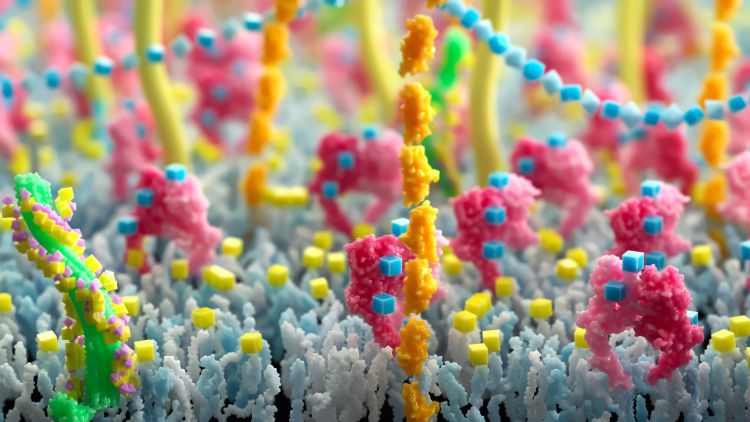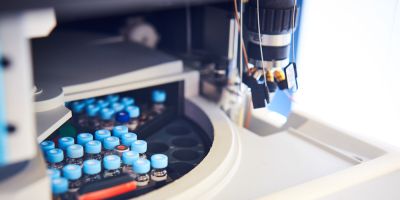University leads €3m European project to pioneer next-gen cancer treatments

Researchers from across Europe, led by the University of Leeds, have joined forces to improve the production of antibody and cell-based therapies.
Many proteins are modified by the addition of sugars, known as glycans, which have profound effects on their function, but often, a complex mixture of different glycans is found on proteins and cells.
Through the €3 million project IMProGlyco, the international consortium will develop a new strategy to generate therapeutics with defined glycosylation patterns critical to their biological and medicinal activity. The team hopes this will enable more patients to benefit from next-generation anti-cancer treatments, such as CAR-T therapy.
IMProGlyco was one of only 40 out of 1,189 proposals funded through the highly competitive European Innovation Council Pathfinder Open scheme. It was the only successful project led from the UK.
Leeds is joined by experts from the University of York, Oslo Metropolitan University, the University of Natural Resources and Life Sciences, Vienna (BOKU), Oslo University Hospital, GlycoSeLect, and the Centre for Process Innovation. Researchers at each institution will combine a unique blend of expertise across glycosciences, such as protein production and engineering, cell biology, analytical mass spectrometry, and machine learning.
Through this partnership, the consortium will develop a method to controllably modify the glycans found on a given cell or protein in a controlled fashion for the first time.
Successful development of the IMProGlyco methodology will enable:
- Optimised glycosylation patterns to improve the therapeutic potency, stability, and immune response of biologics;
- Enhanced production efficiency by developing bioprocessing techniques that allow precise control over glycan structures;
- Enabled reproducibility of glycan modification processes in biopharmaceutical production, ensuring cost-effective manufacturing; and
- An exploration of the role of glycans in the biological system, potentially reducing adverse immune reactions and improving therapeutic behaviour.
Professor Michael Webb, Director of Research and Innovation in the School of Chemistry, and coordinator of IMProGlyco, said: “Glycans play a crucial role in the function of biological molecules, yet our inability to modify these at will means that we often don’t understand this process.
“This project will allow us to explore an innovative approach to glycan tailoring, bringing us closer to the next generation of biologics and cell therapies with optimised performance.”

Left to right: Professor Bruce Turnbull, Dr Darren Machin, and Professor Michael Webb.
The collaboration will leverage each institution's expertise, from molecular biology and glycoscience to protein engineering, machine learning, and mass spectrometry. The team will use cutting-edge technologies, including high-throughput screening and protein production, advanced glycomic tools, and computational modelling of the cell, to develop their method-controlled glycosylation in mammalian cell cultures.
The project continues a long-standing collaboration between Professor Webb and Professor Bruce Turnbull at Leeds, and Professor Dani Ungar at the University of York.
Professor Ungar said: “Efficient tailoring of glycans in cells could reach well beyond our immediate next-generation therapeutics. It could open up the direct manipulation of aberrant sugar synthesis in patients and help in areas as diverse as fighting viral infection and infant nutrition.”
Expertise has been bolstered by the addition of partners from these institutions (Professor Darren Tomlinson, Leeds and Professor Jamie Wood, York) and across Europe, including Professor Iain Wilson (Vienna), Professor Niclas Karlsson and Sebastian Wälchli (Oslo), and industrial contributions from Robert Dunne (GlycoSeLect, Dublin) and the Centre for Process Innovation in Darlington.
Ben Williams, Head of European Funding at the University of Leeds, said: “IMProGlyco is groundbreaking on two fronts. Firstly, being an EIC Pathfinder project, it is at the forefront of a step-change in future technologies, with the potential to revolutionise precision-engineered proteins and vaccines.
“Secondly, following the delayed UK Association to Horizon Europe, it is the University’s first project funded with the role of Coordinator. This is fantastic in demonstrating that our researchers – and the UK in general – can participate in Horizon Europe in the same way we have been used to in pre-Brexit times.”




